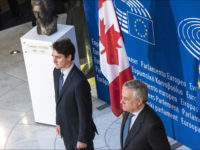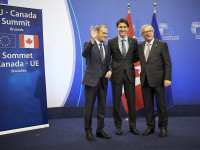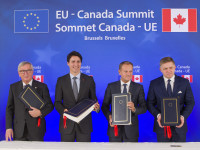The Parliamentary Budget Officer released a report last week providing its estimate on the economic impact of the Canada – EU Trade Agreement. While the Liberal government made CETA its top trade priority when it came into office (and the Conservatives claimed that the deal would add $12 billion to the Canadian economy), the PBO report concludes that the economic benefits will be modest at best.
The report devotes a full chapter to CETA’s intellectual property provisions, particularly the patent related rules that will have a direct impact on the pharmaceutical industry. CETA establishes patent restoration and patent appeal rules that will extend the term of patent protection for pharmaceutical products, thereby increasing consumer prices and royalty outflows. With a regulatory framework designed to address pricing in place, the report focuses on increased royalty outflows with extended protection.











